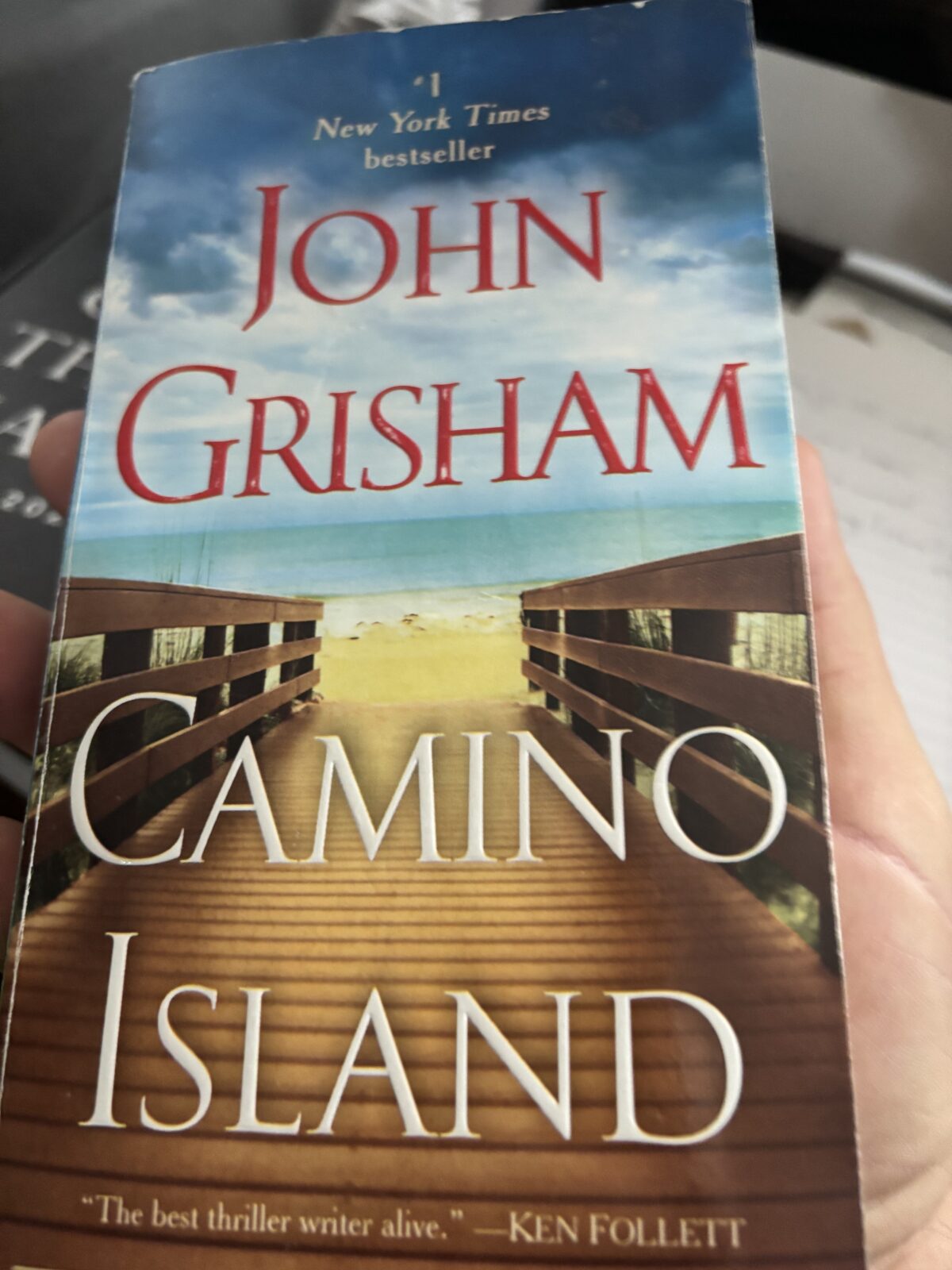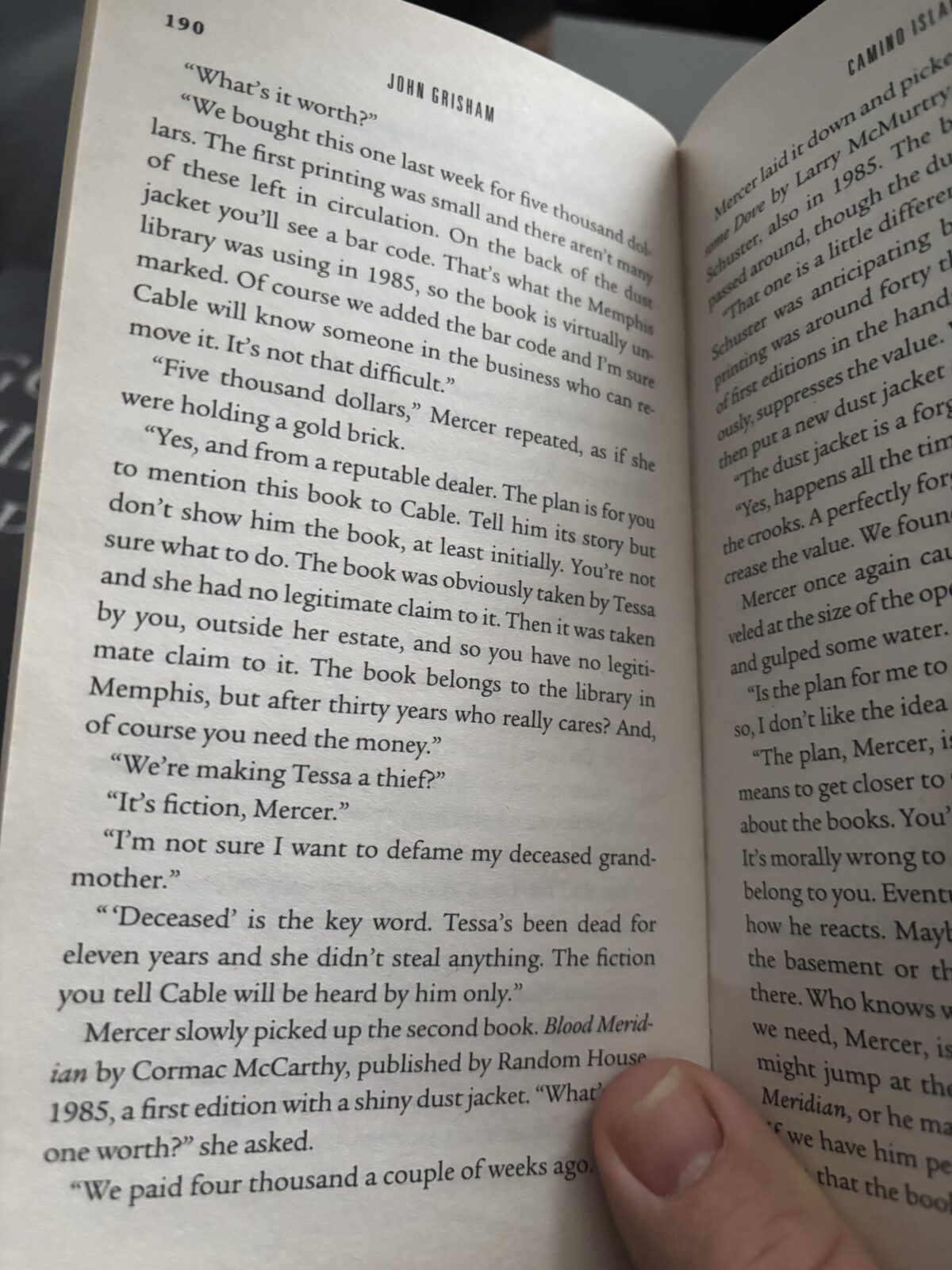Until recently, I’d never read any John Grisham. He’s an incredibly successful novelist. He has entertained millions of readers and apparently has a net worth north of $400 million! Impressive. I’ll never have anywhere near that tier of success for one very important reason (at least it’s important to me).

Ken Follett’s cover quote is that John Grisham is “The best thriller writer alive.”
My incurable folly
I was on my way to Cuba. I needed something to take my mind off defying God by cramming myself into a flying death tube just to see palm trees. She Who Must Be Obeyed handed me Camino Island for the journey. This novelist is probably old news to you, but an unread book is always new to the uninitiated.
The story held a few surprises up front. I liked the heist very much. I love heist capers, and this was a clever one that made sense. I did have a quibble immediately after the first scene concluded, though. The cops arrive, scoop up a few drops of blood, and have the name of one of the perpetrators immediately. DNA analysis doesn’t work that quickly. That’s some CSI nonsense., but readers who value narrative speed over verisimilitude (and plenty do) won’t mind.
Fun note: I recently learned the most accurate forensic science show was Quincy M.E. It would be out of date now, but I was impressed the show didn’t use fake props. They bought real medical equipment and their forensic scientist actually had a role on the show.
I see the value and appreciate the lure of Grisham’s prose. It’s so straightforward, it makes for a fast read. I get it. The sentence structures are so simple to swallow: NOUN + VERB + OBJECT. Repeat. It’s as easy as an elementary school textbook. See Dick run.
A smarter writer would emulate the master’s success. I’m not a smarter writer. What I missed was interiority.
“Interiority is a writing technique that explores a character’s inner life, including their thoughts, feelings, and actions. It’s a way to show readers how a character processes information and makes sense of the world around them.” ~ according to the internet.
I read a good chunk of Camino Island, and not once did I get a glimpse inside a character’s head. The danger of overusing omniscience is the writer ends up telling instead of showing. Any writing teacher advises, “Show, don’t tell.” We don’t write, “She was nervous.” We write, “Betsy’s hands shook. Her heart raced and she could not slow her breathing.”
I’m all for showing, not telling. However, I love to explore motivations. My characters struggle to make sense of their worlds. I’m struggling with that all the time, too. So, I’m committed to failure in that I can’t emulate John Grisham’s style. Good for him, probably bad for me. He’s not wrong. We’re just different.
On the other hand, I visited a little specialty bookstore yesterday. They had a very small general fiction section, but it was well curated. I was pleased to find that I’d read many of the novels on their shelves. It gave me confidence that I’d find more great books to my taste there. Many other novelists have had success using techniques that explore characters’ inner worlds. Few novelists ever touch the heights of Grisham’s financial success and vast fan base, but I still believe there’s room for me on the Reader Ship. I might have to settle for cargo class, but I’m on the same boat.
I’ll never be John Grisham, but I have an excellent shot at being Robert Chazz Chute.

Not a single “he thought” or “she thought in italics here.” Alas.

